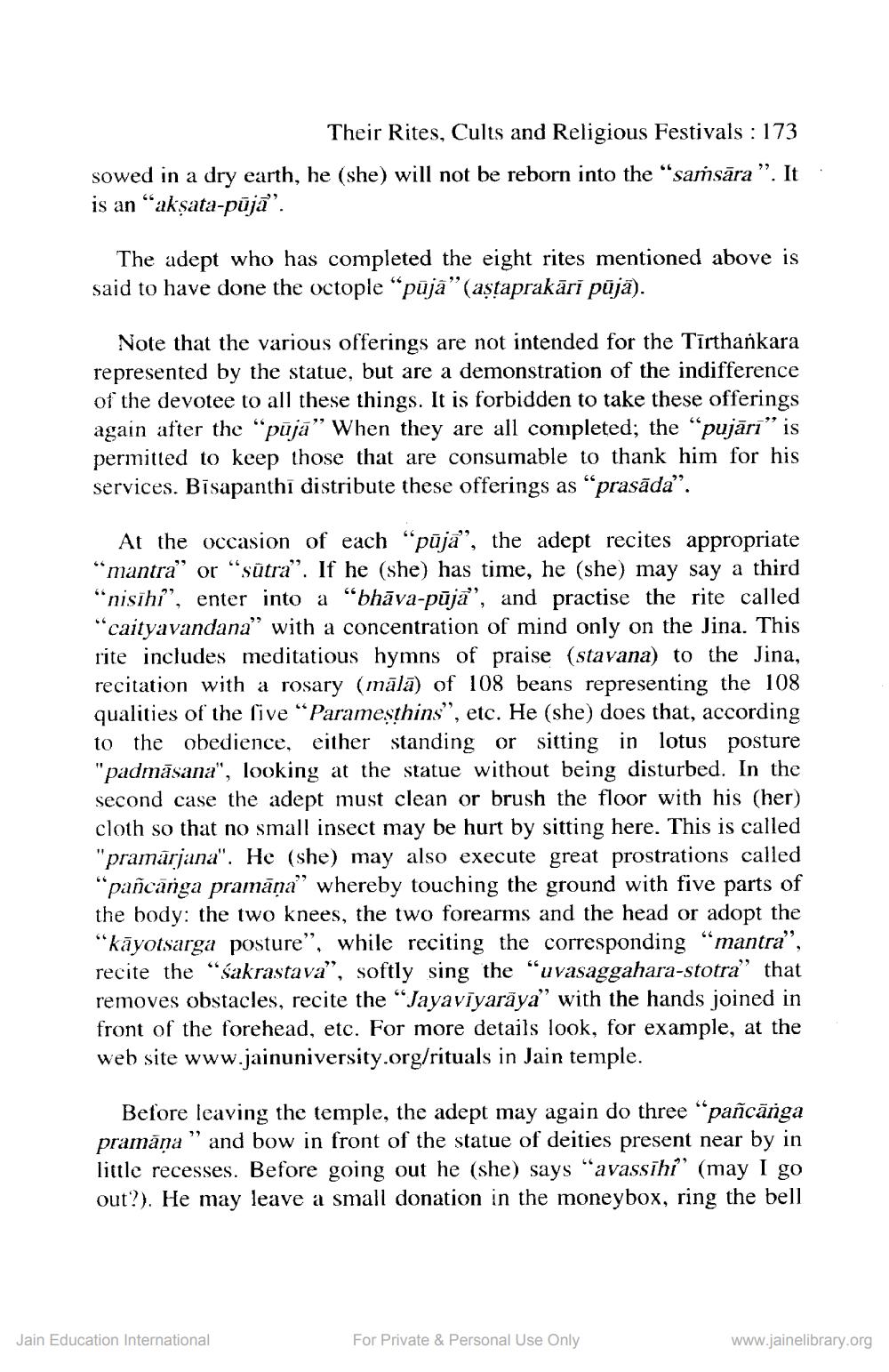________________
Their Rites, Cults and Religious Festivals : 173 sowed in a dry earth, he (she) will not be reborn into the "saṁsāra”. It. is an “akşata-pūjā.
The adept who has completed the eight rites mentioned above is said to have done the octople “puja" (astaprakāri püjā).
Note that the various offerings are not intended for the Tīrthankara represented by the statue, but are a demonstration of the indifference of the devotee to all these things. It is forbidden to take these offerings again after the “pūjā” When they are all completed; the “pujāri” is permitted to keep those that are consumable to thank him for his services. Bisapanthi distribute these offerings as “prasāda”.
At the occasion of each "pūja", the adept recites appropriate “mantra" or "sūtra”. If he (she) has time, he (she) may say a third "nisihi”, enter into a “bhāva-pāja", and practise the rite called "caityavandana" with a concentration of mind only on the Jina. This rite includes meditatious hymns of praise (stavana) to the Jina, recitation with a rosary (mālā) of 108 beans representing the 108 qualities of the five “Paramesthins”, etc. He (she) does that, according to the obedience, either standing or sitting in lotus posture "padmāsana", looking at the statue without being disturbed. In the second case the adept must clean or brush the floor with his (her) cloth so that no small insect may be hurt by sitting here. This is called "pramārjana". He (she) may also execute great prostrations called "pancanga pramāņa” whereby touching the ground with five parts of the body: the two knees, the two forearms and the head or adopt the "kāyotsarga posture”, while reciting the corresponding “mantra”, recite the “sakrastava”, softly sing the “uvasaggahara-stotra" that removes obstacles, recite the “Jayavīyarāya” with the hands joined in front of the forehead, etc. For more details look, for example, at the web site www.jainuniversity.org/rituals in Jain temple.
Before leaving the temple, the adept may again do three “pañcānga pramāņa” and bow in front of the statue of deities present near by in little recesses. Before going out he (she) says “avassihi (may I go out?). He may leave a small donation in the moneybox, ring the bell
Jain Education International
For Private & Personal Use Only
www.jainelibrary.org




